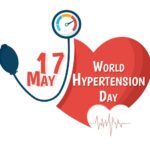Support provision of quality health services to refugees and migrants
“While facing similar health risks to their host communities, refugees and migrants may have specific health needs and are often vulnerable to adverse health outcomes due to their mobility, living and working conditions,” said Dr Santino Severoni, Director of the WHO Health and Migration Programme.
“Refugees and migrants face obstacles in accessing people-centred and culturally sensitive health services in both countries of transit and destination. These can include language and cultural differences, institutional discrimination, and restricted use of health services, all of which shape their interactions with the host country’s health system and health workforce.”
Inclusive health systems put people at their centre. The development of the Standards and their adaptation to country contexts will allow health workers to improve practices in culturally sensitive care, leading to better health outcomes for refugees and migrants across the world.
The health workforce has a vital role in providing health services that are inclusive and respectful of a person’s cultural, religious, and linguistic needs. With the right training, health workers can develop the competencies to adapt and provide services appropriate for each person’s culture and needs. As these competencies are integrated into health care approaches the resilience of health systems to respond to the health care needs of refugees and migrants is strengthened.
Launched for International Migrants Day 2021, the document is accompanied by a Knowledge Guide and Curriculum Guide to support its operationalization.
Health workers providing health services to migrants and refugees are invited to integrate the Standards into their daily healthcare activities. The competencies described can be tailored to the various environments that health workers operate in and take into consideration the requirements and constraints of local health systems as well as the characteristics of the diverse refugee and migrant populations.
This is the first set of Competency Standards to be developed for health workers who provide health services to refugees and migrants as well as for educational institutions to incorporate these standards and foundational knowledge and skills into health worker training.
“2021 is the International Year of Health and Care Workers, which recognizes the unwavering dedication of millions of workers at the forefront of the COVID-19 pandemic response, and thanks them for their vital role in ensuring our health and wellbeing,” stated Jim Campbell, Director of WHO’s Health Workforce Department. “The same workers must be supported with a competency-based education, as outlined in the Standards and accompanying Guides and for which there is compelling evidence of impact, to take us a step closer towards universal health coverage for all populations, including for refugees and migrants.”
healthysoch







